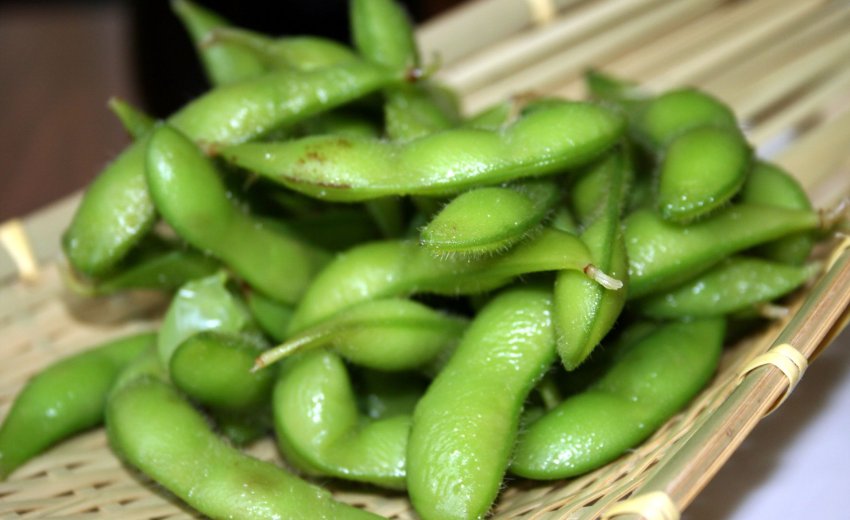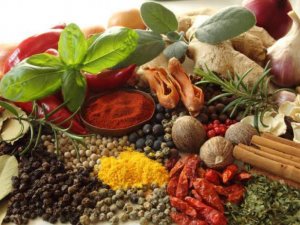Many breast cancer patients come to me for immune and wellness support while they are getting treatment for their breast cancer.
After surgery, chemotherapy, and radiation, breast cancer patients are normally followed at approximately three month intervals by their oncologists for possible recurrence.
The patients who stay with me after the completion of their formal traditional therapy for breast cancer, realize that ongoing immune and well-being support is necessary to keep their body as healthy as possible.
One of the things we discus often is diet. The recommended diet for breast cancer survivors spreads on the spectrum from Paleo with a heavy meat diet, to an all vegan diet. Everybody has their own perspective on this.
For years, one of the things that breast cancer survivors have been the most fearful of is soybeans and soy products. Somehow many years ago there came the belief that soy because it contains “phytoestrogens”, could stimulate the recurrence of breast cancer. The word estrogen has scared everybody, and breast cancer survivors as well as healthy people who want to protect themselves from breast cancer avoid soy products for that reason.
But with the latest information, we realize that this has all been a myth!
Fortunately my longtime colleague Michael Greger, M.D. has done a wonderful review of the soy and breast cancer literature which was actually published three years ago. And now he has a recent update with even more information about soy and breast health.
With the latest knowledge we have come to learn there are two estrogen receptors, and that is why soy can be so helpful, not only for breast cancer protection but also for bone density.
As Dr Greger points out “How can soy foods have it both ways, pro-estrogenic effects in some organs (protecting bones and reducing hot flash symptoms) but anti-estrogenic effects in others (protecting against breast and endometrial cancer)?”
In these two videos he reviews all the studies on soy and breast cancer, and clearly shows that women who ate the HIGHEST amount of soy after breast cancer had the LONGEST survival! So soy actually protects against future breast cancer!
This is the opposite of what women have been told for years and what women today are still being told by their oncologists.
I urge you to watch these videos and eat soy to stay healthy!
Photo by Tammy Green (aka Zesmerelda) from Chicago Upscale Dining + Lounge Republic Pan-Asian Restaurant [http://www.republicrestaurant.us/ in Ontario & Rush Street, Chicago, Illinois 60611] - Flickr, CC BY-SA 2.0, Link
Here is a list of references to bring to your oncologist:
- W.-C. Chang, M. L. Wahlqvist, H.-Y. Chang, C.-C. Hsu, M.-S. Lee, W.-S. Wang, C. A. Hsiung. A bean-free diet increases the risk of all-cause mortality among Taiwanese women: The role of the metabolic syndrome. Public Health Nutr. 2012 15(4):663 – 672.
- S. J. Nechuta, B. J. Caan, W. Y. Chen, W. Lu, Z. Chen, M. L. Kwan, S. W. Flatt, Y. Zheng, W. Zheng, J. P. Pierce, X. O. Shu. Soy food intake after diagnosis of breast cancer and survival: An in-depth analysis of combined evidence from cohort studies of US and Chinese women. Am. J. Clin. Nutr. 2012 96(1):123 – 132.
- Y.-F. Zhang, H.-B. Kang, B.-L. Li, R.-M. Zhang. Positive effects of soy isoflavone food on survival of breast cancer patients in China. Asian Pac. J. Cancer Prev. 2012 13(2):479 – 482.
- M. Zanovec, C. E. O’Neil, T. A. Nicklas. Comparison of Nutrient Density and Nutrient-to-Cost between Cooked and Canned Beans. Food Nutr Sci. 2011 2(2):66–73.
- S. M. Krebs-Smith, P. M. Guenther, A. F. Subar, S. I. Kirkpatrick, K. W. Dodd. Americans do not meet federal dietary recommendations. J. Nutr. 2010 140(10):1832 – 1838.
- I. Darmadi-Blackberry, M. L. Wahlqvist, A. Kouris-Blazos, B. Steen, W. Lukito, Y. Horie, K. Horie. Legumes: The most important dietary predictor of survival in older people of different ethnicities. Asia Pac J Clin Nutr. 2004 13(2):217 – 220.
- D. M. Winham, A. M. Hutchins. Perceptions of flatulence from bean consumption among adults in 3 feeding studies. Nutr J. 2011 10:128.
- H. M. Spiro. Fat, foreboding, and flatulence. Ann. Intern. Med. 1999 130(4 Pt 1):320 – 322.
- R. S. Sandler, N. L. Zorich, T. G. Filloon, H. B. Wiseman, D. J. Lietz, M. H. Brock, M. G. Royer, R. K. Miday. Gastrointestinal symptoms in 3181 volunteers ingesting snack foods containing olestra or triglycerides. A 6-week randomized, placebo-controlled trial. Ann Intern Med. 1999 130(4 Pt 1):253–261.
- S. E. Fleming, A. U. O’Donnell, J. A. Perman. Influence of frequent and long-term bean consumption on colonic function and fermentation. Am. J. Clin. Nutr. 1985 41(5):909 – 918.
- N. Desrochers, P. M. Brauer. Legume promotion in counselling: an e-mail survey of dietitians. Can J Diet Pract Res. 62(4):193–198.
- R. Bosviel, E. Dumollard, P. Déchelotte, Y. J. Bignon, D. Bernard-Gallon. Can soy phytoestrogens decrease DNA methylation in BRCA1 and BRCA2 oncosuppressor genes in breast cancer? OMICS. 16(5):235–244.
- A. H Wu, D. V. Spicer, M. C. Pike. Soy isoflavones for breast cancer risk reduction. Cancer Prev Res. 2012 5(7):984–985.
- P. Magee, I. Rowland. Soy products in the management of breast cancer. Curr Opin Clin Nutr Metab Care. 2012 15(6):586–591.
- H. B. Kang, Y. F. Zhang, J. D. Yang, K. L. Lu. Study on soy isoflavone consumption and risk of breast cancer and survival. Asian Pac J Cancer Prev. 2012 13(3):995–998.
- R. Swann, K. A. Perkins, L. S. Velentzis, C. Ciria, S. J. Dutton, A. A. Mulligan, J. V. Woodside, M. M. Cantwell, A. J. Leathem, C. E. Robertson, M. V. Dwek. The DietCompLyf study: a prospective cohort study of breast cancer survival and phytoestrogen consumption. Maturitas. 2013 75(3):232–240.
- S. N. Vasilatos, G. Broadwater, W. T. Barry, J. C. Jr Baker, S. Lem, E. C. Dietze, G. R. Bean, A. D. Bryson, P. G. Pilie, V. Goldenberg, D. Skaar, C. Paisie, A. Torres-Hernandez, T. L. Grant, L. G. Wilke, C. Ibarra-Drendall, J. H. Ostrander, N. C. D’Amato, C. Zalles, R. Jirtle, V. M. Weaver, V. L. Seewaldt. CpG island tumor suppressor promoter methylation in non-BRCA-associated early mammary carcinogenesis. Cancer Epidemiol Biomarkers Prev. 2009 18(3):901–914.
- A. Bal, S. Verma, K. Joshi, A. Singla, R. Thakur, S. Arora, G. Singh. BRCA1-methylated sporadic breast cancers are BRCA-like in showing a basal phenotype and absence of ER expression. Virchows Arch. 2012 461(3):305–312.
- M. A. Arnold, M. Goggins. BRCA2 and predisposition to pancreatic and other cancers. Expert Rev Mol Med. 2001 2001:1–10.
And here is an additional list with many more articles:
- McCarty MF. Isoflavones made simple – genistein’s agonist activity for the beta-type estrogen receptor mediates their health benefits. Med Hypotheses. 2006;66(6):1093–114.
- Oseni T, Patel R, Pyle J, Jordan VC. Selective estrogen receptor modulators and phytoestrogens. Planta Med. 2008 Oct;74(13):1656–65.
- Mueller SO, Simon S, Chae K, Metzler M, Korach KS. Phytoestrogens and their human metabolites show distinct agonistic and antagonistic properties on estrogen receptor alpha (ERalpha) and ERbeta in human cells. Toxicol Sci. 2004 Jul;80(1):14–25.
- Kuiper GG, Gustafsson JA. The novel estrogen receptor-beta subtype: potential role in the cell- and promoter-specific actions of estrogens and anti-estrogens. FEBS Lett. 1997 Jun 23;410(1):87–90.
- Lapcík O, Hampl R, Hill M, Wähälä K, Maharik NA, Adlercreutz H. Radioimmunoassay of free genistein in human serum. J Steroid Biochem Mol Biol. 1998 Mar;64(5–6):261–8.
- Taylor AH, Al-Azzawi F. Immunolocalisation of oestrogen receptor beta in human tissues. J Mol Endocrinol. 2000 Feb;24(1):145–55.
- Rossouw JE, Anderson GL, Prentice RL, LaCroix AZ, Kooperberg C, Stefanick ML, Jackson RD, Beresford SA, Howard BV, Johnson KC, Kotchen JM, Ockene J; Writing Group for the Women’s Health Initiative Investigators. Risks and benefits of estrogen plus progestin in healthy postmenopausal women: principal results From the Women’s Health Initiative randomized controlled trial. JAMA. 2002 Jul 17;288(3):321–33.
- Fugh-Berman A, Pearson C. The overselling of hormone replacement therapy. Pharmacotherapy. 2002 Sep;22(9):1205–8.
- Fioravanti L, Cappelletti V, Miodini P, Ronchi E, Brivio M, Di Fronzo G. Genistein in the control of breast cancer cell growth: insights into the mechanism of action in vitro. Cancer Lett. 1998 Aug 14;130(1–2):143–52.
- So FV, Guthrie N, Chambers AF, Carroll KK. Inhibition of proliferation of estrogen receptor-positive MCF–7 human breast cancer cells by flavonoids in the presence and absence of excess estrogen. Cancer Lett. 1997 Jan 30;112(2):127–33.
- Nagel SC, vom Saal FS, Welshons WV. The effective free fraction of estradiol and xenoestrogens in human serum measured by whole cell uptake assays: physiology of delivery modifies estrogenic activity. Proc Soc Exp Biol Med. 1998 Mar;217(3):300–9.
- Grady D, Gebretsadik T, Kerlikowske K, Ernster V, Petitti D. Hormone replacement therapy and endometrial cancer risk: a meta-analysis. Obstet Gynecol. 1995 Feb;85(2):304–13.
- Sammartino A, Di Carlo C, Mandato VD, Bifulco G, Di Stefano M, Nappi C. Effects of genistein on the endometrium: ultrasonographic evaluation. Gynecol Endocrinol. 2003 Feb;17(1):45–9.
- Ollberding NJ, Lim U, Wilkens LR, Setiawan VW, Shvetsov YB, Henderson BE, Kolonel LN, Goodman MT. Legume, soy, tofu, and isoflavone intake and endometrial cancer risk in postmenopausal women in the multiethnic cohort study. J Natl Cancer Inst. 2012 Jan 4;104(1):67–76.
- Myung SK, Ju W, Choi HJ, Kim SC; Korean Meta-Analysis (KORMA) Study Group. Soy intake and risk of endocrine-related gynaecological cancer: a meta-analysis. BJOG. 2009 Dec;116(13):1697–705.
- Somekawa Y, Chiguchi M, Ishibashi T, Aso T. Soy intake related to menopausal symptoms, serum lipids, and bone mineral density in postmenopausal Japanese women. Obstet Gynecol. 2001 Jan;97(1):109–15.
- Wei P, Liu M, Chen Y, Chen DC. Systematic review of soy isoflavone supplements on osteoporosis in women. Asian Pac J Trop Med. 2012 Mar;5(3):243–8.
- Lydeking-Olsen E, Beck-Jensen JE, Setchell KD, Holm-Jensen T. Soymilk or progesterone for prevention of bone loss–a 2 year randomized, placebo-controlled trial. Eur J Nutr. 2004 Aug;43(4):246–57.
- Morabito N, Crisafulli A, Vergara C, Gaudio A, Lasco A, Frisina N, D’Anna R, Corrado F, Pizzoleo MA, Cincotta M, Altavilla D, Ientile R, Squadrito F. Effects of genistein and hormone-replacement therapy on bone loss in early postmenopausal women: a randomized double-blind placebo-controlled study. J Bone Miner Res. 2002 Oct;17(10):1904–12.
- Vidal O, Kindblom LG, Ohlsson C. Expression and localization of estrogen receptor-beta in murine and human bone. J Bone Miner Res. 1999 Jun;14(6):923–9.
- Zhang X, Shu XO, Li H, Yang G, Li Q, Gao YT, Zheng W. Prospective cohort study of soy food consumption and risk of bone fracture among postmenopausal women. Arch Intern Med. 2005 Sep 12;165(16):1890–5.
- Reinwald S, Weaver CM. Soy components vs. whole soy: are we betting our bones on a long shot? J Nutr. 2010 Dec;140(12):2312S–2317S.
- Labrie F. All sex steroids are made intracellularly in peripheral tissues by the mechanisms of intracrinology after menopause. J Steroid Biochem Mol Biol. 2015 Jan;145:133–8.
- Vierk KA, Koehler KM, Fein SB, Street DA. Prevalence of self-reported food allergy in American adults and use of food labels. J Allergy Clin Immunol. 2007 Jun;119(6):1504–10.





